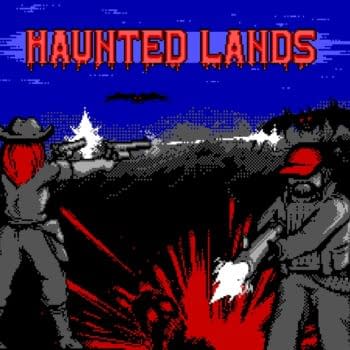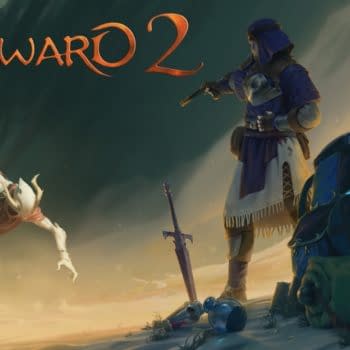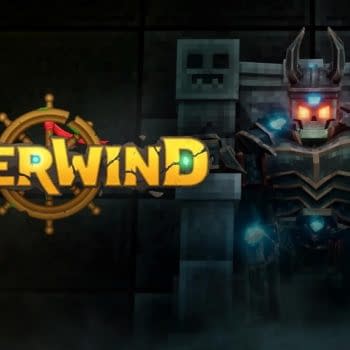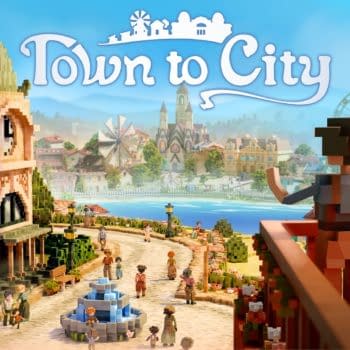Posted in: Games, Video Games | Tagged: EA, EA Redwood Shores, Ragtag, Visceral Games, Visceral Star Wars
The Story Behind The Collapse Of Visceral's Star Wars
Perhaps the most surprising thing about the collapse of Visceral Games and their long-awaited Star Wars game, was how unsurprising it was to many at Visceral when EA told them to pack up the studio and go home. Visceral, as Kotaku's Jason Schreier points out in his lengthy epic about the studio's fall, had been "an odd fit at EA for several years now." The studio was originally founded in 1998, then called EA Redwood Shores, and developed an eclectic assortment of games in the early 2000s until achieving success with horror-action-adventure hyrbid Dead Space.
In 2015, at about the same time they released Battlefield Hardline, the studio brought on board director Amy Hennig, who is best known for writing and directing the first three Uncharted games. Hennig's project was to be called Ragtag, which was going to be EA's entry into the action-adventure market – a market they've never properly entered before – with a linear Star Wars story set between episodes IV and V. On paper, Ragtag would have been a success. It was a team-based action-adventure story in the vein of Uncharted, set in the incredibly fruitful Star Wars franchise, with the backing of industry juggernaut Electronic Arts. The game's protagonist was even a Han Solo-esque rogue with a grudge against a mob boss. Star Wars: The Space Mafia Edition is a pretty glorious premise.
But it just wasn't enough.
As Schreier tells it:
In the weeks leading up to the studio's closure, the staff of Visceral Games had crunched hard, working long hours to make a demo for Ragtag that they hoped might impress EA. Alongside the Canada-based studio EA Vancouver, Visceral's employees made a set of high-octane demos in which Ragtag's main characters would get chased by an AT-ST walker, get into a shootout on the desert planet Tatooine, and embark on a rescue mission within the dungeons of Jabba's palace. One person who worked on the game described these demos as a "sampler platter," something that would show EA's executives what Visceral's vision of Uncharted Star Wars could become.
The demos weren't enough. Former Visceral employees don't know when EA made the decision to shut down their studio, but on October 17, 2017, it became official. Visceral, which employed around 80 people, was no more. Staff say they were given three weeks to put together portfolios and look for other employment, both in and outside of EA.
And the primary reason given for the collapse of Visceral, and the death of Ragtag, is pure Captialism at work. Visceral, best known for making a linear action-adventure game series called Dead Space, did not fit into EA's focus on "games as a service," which basically translates to games designed to generate money long after they've launched. EA's games library has been jokingly referred to as a long series of micro-transactions for a reason, after all. And Ragtag wouldn't fit into that mold. Even with the standard two major content pack DLCs, linear action-adventure games don't continue to generate profit the way Battlefield 1 or FIFA 18 do. And for EA, that was the problem with Visceral.
However, according to several anonymous Visceral employees who spoke with Kotaku, "Ragtag was a project sunk by many factors, including a lack of resources, a vision that was too ambitious for its budget, a difficult game engine, a director who clashed with staff, a studio located in one of the most expensive cities in the world, a reputation for toxicity, multiple conflicts between Visceral and EA, and what can only be described as the curse of Star Wars."
And because EA's reputation as a money machine has been longstanding, it wasn't a secret to any at Visceral that their project wasn't quite the success it sounded like on paper. They all knew who cut their paychecks, and what that company wanted wasn't a linear single-player "play it once and never again" kind of game. "It felt like we were always under the threat of closure," said one former employee. "It was a really unhealthy place."
In fact, the death knell for Visceral was Dead Space 3 which was a commercial failure. If you look back at the reports coming from EA's earnings call in May of 2013, you'll find that the game "came in below our forecast."
And while Hennig is a big name in the games industry, she also has a fractious reputation despite her success. Hennig left Naughty Dog during development of Uncharted 4 due to continued creative conflicts.
Schreier put some incredible work into his piece on the fall of Visceral and all of the many factors contributing to the studios closing, but it is perhaps his closing that holds the most weight as to how this all will affect players. "With Ragtag, Amy Hennig and Visceral set out to make something that fans wanted—a proper single-player Star Wars game the likes of which we haven't seen for nearly a decade. Like 1313 before it, things didn't work out. It's starting to look like a pattern that will require Star Wars fans to do something they're asked to do a lot: Wait. Maybe things'll finally work out next time."
However, I would argue that, as long as those rights remain with EA we will not see that single-player Star Wars game unless the games industry itself experiences a massive change. And that change does not appear to be anywhere on the horizon.





![[REVIEW] "Gang Beasts" is Zany Party Madness](https://mlpnk72yciwc.i.optimole.com/cqhiHLc.IIZS~2ef73/w:350/h:350/q:75/rt:fill/g:ce/https://bleedingcool.com/wp-content/uploads/2019/09/gang-beasts-7-350x350.jpg)
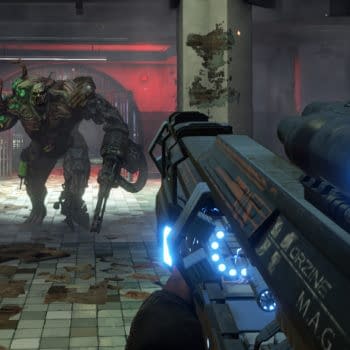
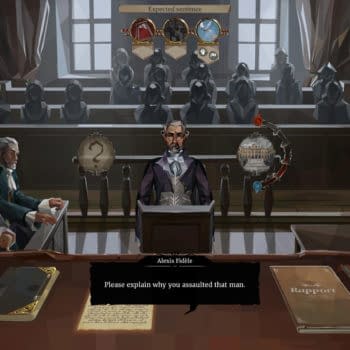


![[REVIEW] "Divinity: Original Sin II" Definitive Edition is Almost Perfect](https://mlpnk72yciwc.i.optimole.com/cqhiHLc.IIZS~2ef73/w:350/h:350/q:75/rt:fill/g:ce/https://bleedingcool.com/wp-content/uploads/2018/08/Divinity-Original-Sin-2-Definitive-Edition-art-350x350.jpg)
